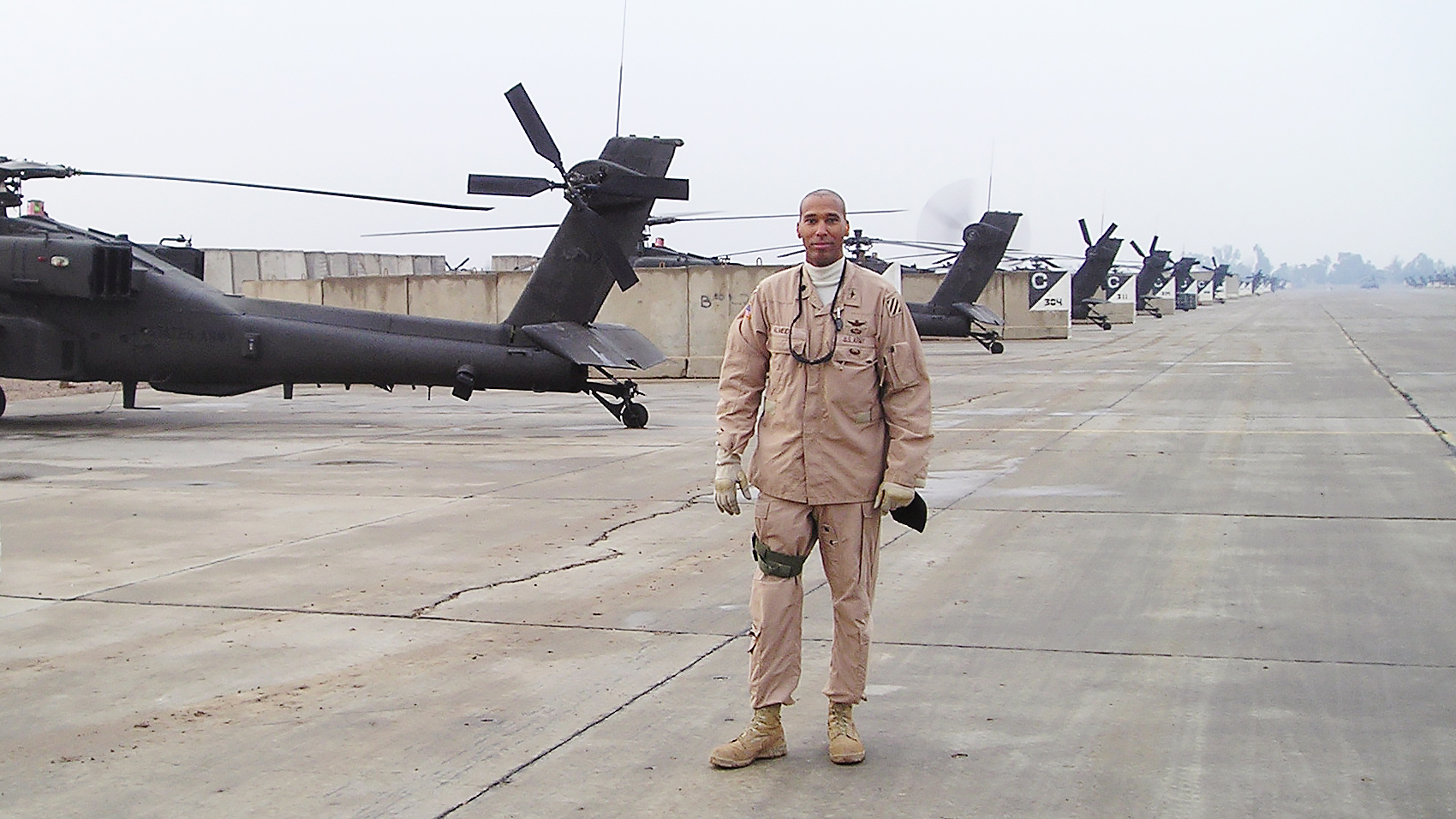Lessons in leadership: Life after combat
Pedro Almeida ’88

After 27 years as an aviation officer in the US Army, including tours in Iraq and Afghanistan, Pedro Almeida believes that all we need to know about leadership can be learned in kindergarten. “Be kind, treat people with respect,” says Almeida, who retired as a colonel in 2015 and is now chief operations officer of School District 49 in Colorado Springs, Colorado. “And be sure everyone in the organization knows what the mission is.”
Born in New Bedford, Massachusetts, to immigrant parents from Cape Verde, Almeida followed his older sister’s example and enrolled in Junior Reserve Officers Training Corps (JROTC) in high school. “I liked having a purpose beyond my own ambitions,” he recalls. “It sounds flowery, but if you’re in the military and you think it’s about you, you’re in the wrong place.”
Almeida came to MIT on an ROTC scholarship to study materials science and engineering. The military part of campus life felt familiar, but like many first-year students, he found the academics challenging. Although tempted to quit, he improved his study habits and found a way to pass calculus. As a senior, he was named the country’s top aviation cadet. “It was an important life lesson about facing unexpected challenges and finding different ways to meet them,” he says.
MIT degree in hand, Almeida spent 16 months at flight school before deploying to Iraq in 1991, leading a platoon of six Apache helicopters. He returned to Iraq in 2005 as a lieutenant colonel, commanding a battalion of Apache aircraft. Amidst the chaos of war, Almeida honed his leadership acumen. “Pilots have a good overview of the mission at 10,000 feet,” he explains. “But it’s just as important to talk with the vehicle handlers and refuelers … you can’t fly an Apache helicopter without fuel or proper maintenance.”
In between the two Iraq deployments, he served as a foreign area officer at the US embassy in Niger. Then he completed a master’s degree in international affairs at Columbia University, and he deployed to Afghanistan as a colonel in 2010. In all, Almeida logged over 2,000 flight hours—800 in combat.
On returning to civilian life, he pursued another lifelong interest: education. He taught at the high school and community college levels before applying for his current position, where he implements familiar leadership lessons while carrying out responsibilities that include transportation, nutrition services, security, IT, and facilities. “In any organization where people are treated with respect, you can start building a team,” he reflects. “And building a team is the single most important factor in determining success or failure.”
Keep Reading
Most Popular
Large language models can do jaw-dropping things. But nobody knows exactly why.
And that's a problem. Figuring it out is one of the biggest scientific puzzles of our time and a crucial step towards controlling more powerful future models.
How scientists traced a mysterious covid case back to six toilets
When wastewater surveillance turns into a hunt for a single infected individual, the ethics get tricky.
The problem with plug-in hybrids? Their drivers.
Plug-in hybrids are often sold as a transition to EVs, but new data from Europe shows we’re still underestimating the emissions they produce.
Google DeepMind’s new generative model makes Super Mario–like games from scratch
Genie learns how to control games by watching hours and hours of video. It could help train next-gen robots too.
Stay connected
Get the latest updates from
MIT Technology Review
Discover special offers, top stories, upcoming events, and more.